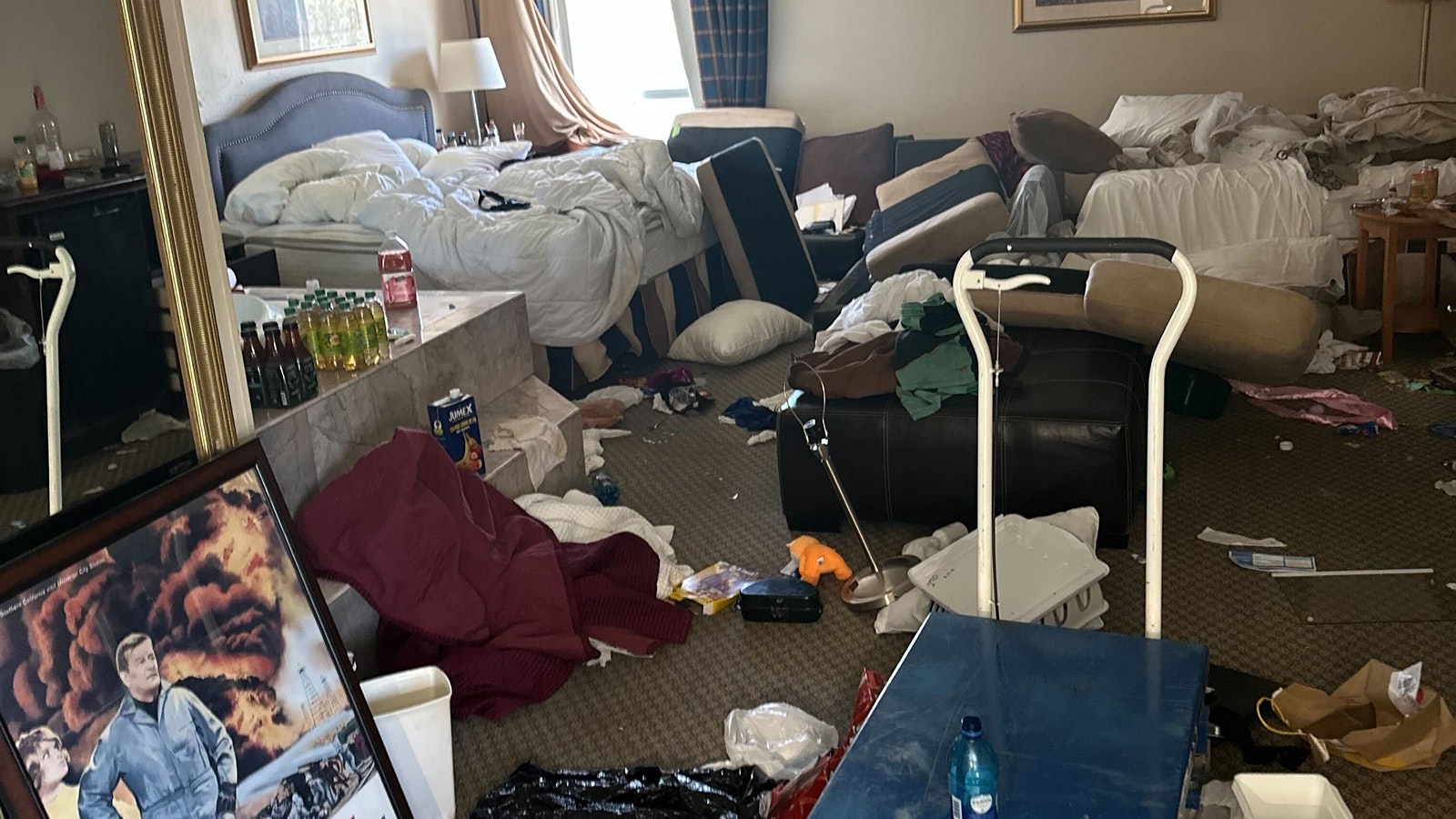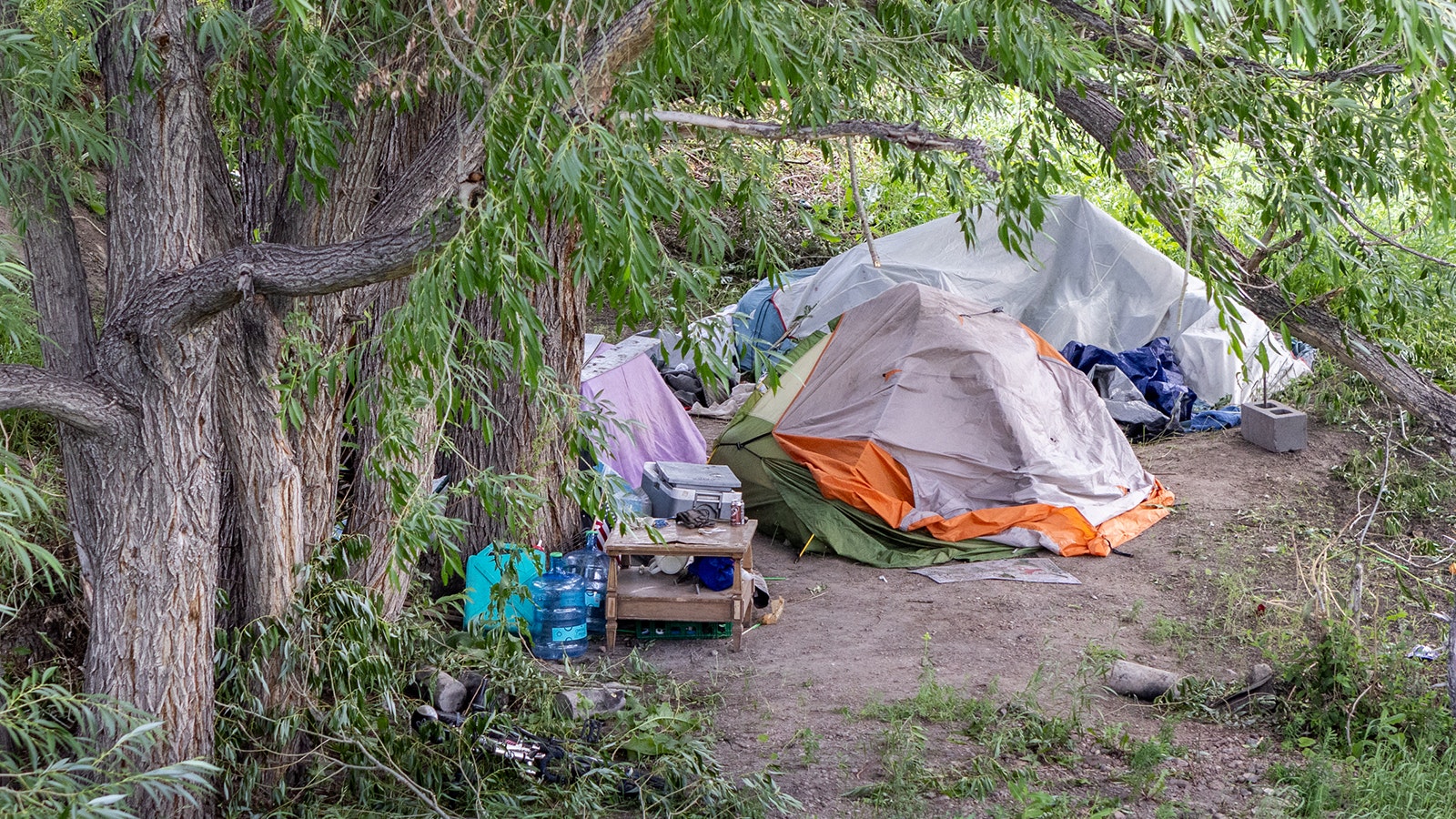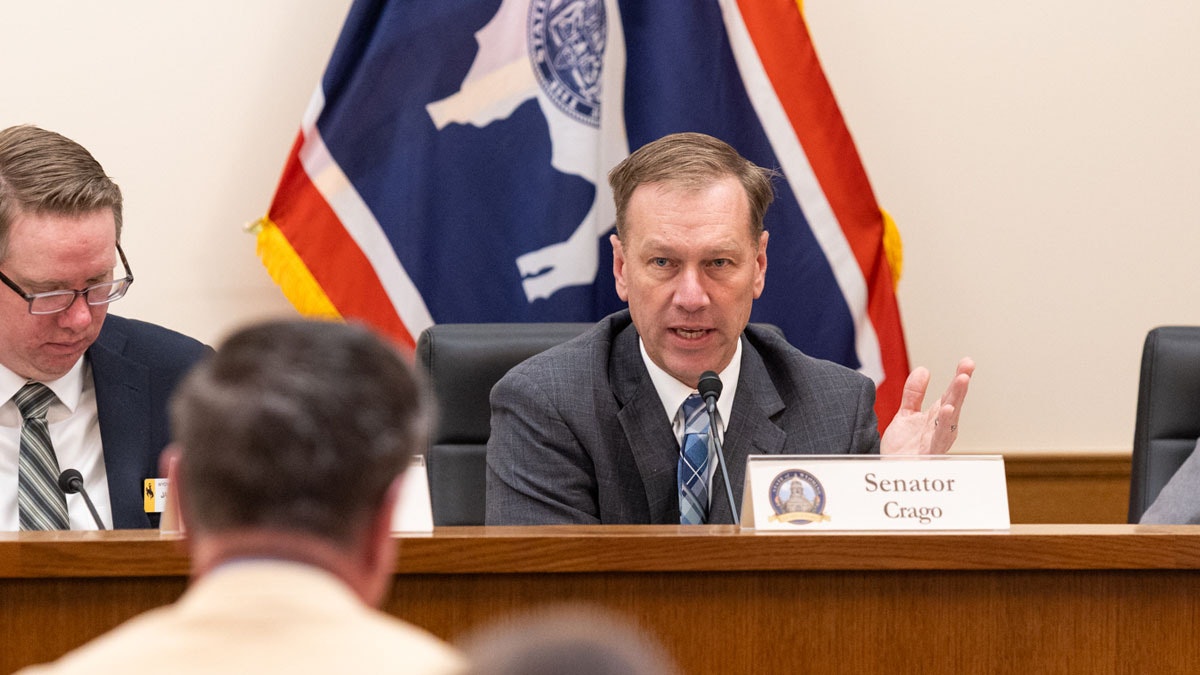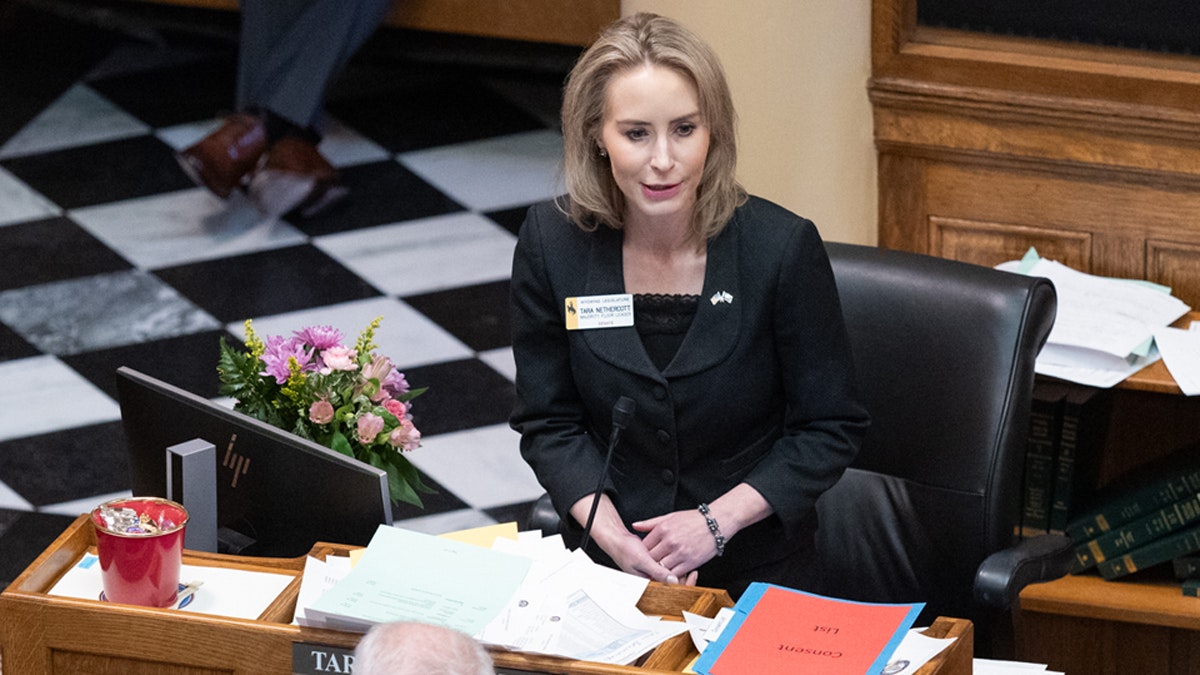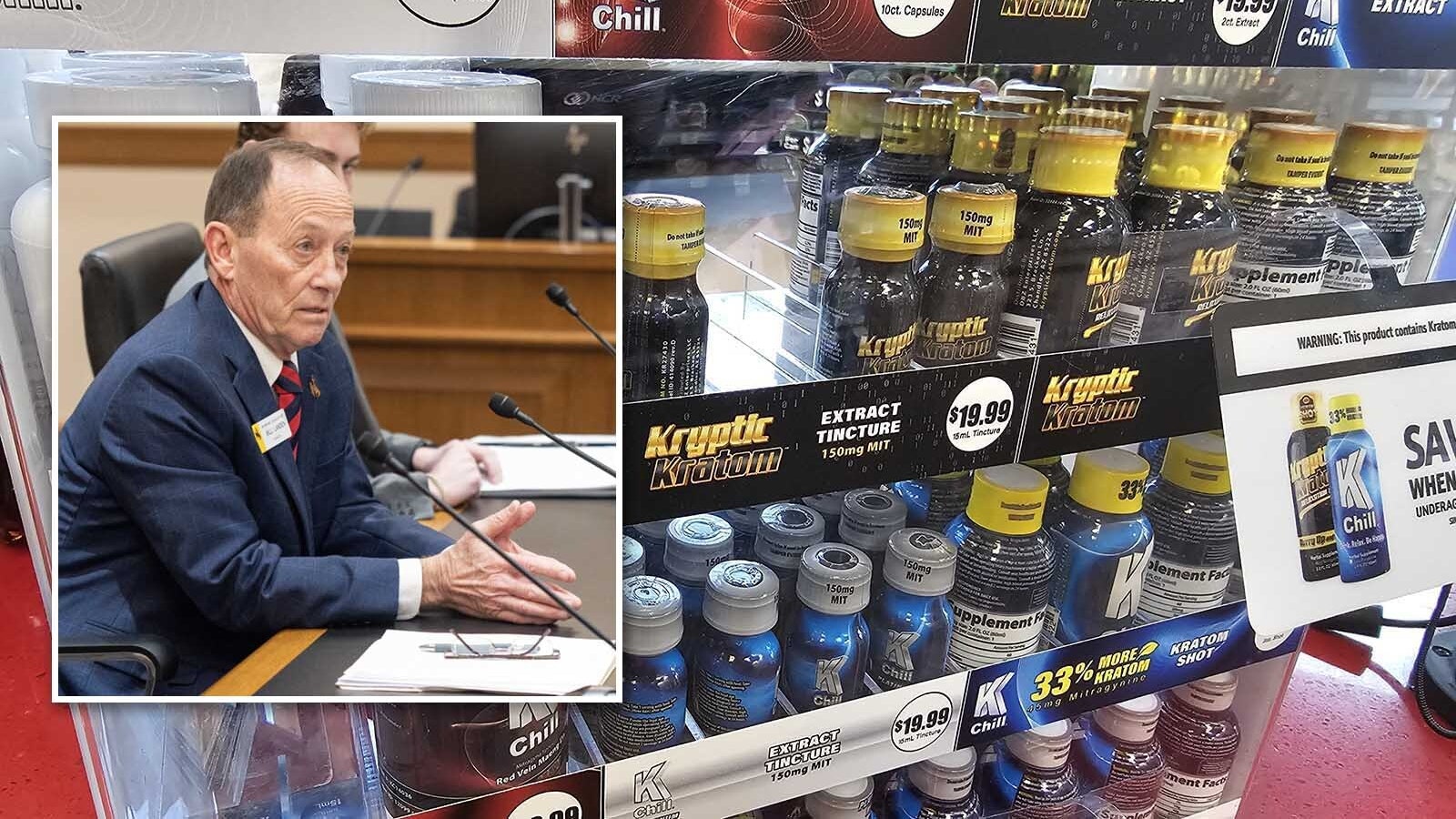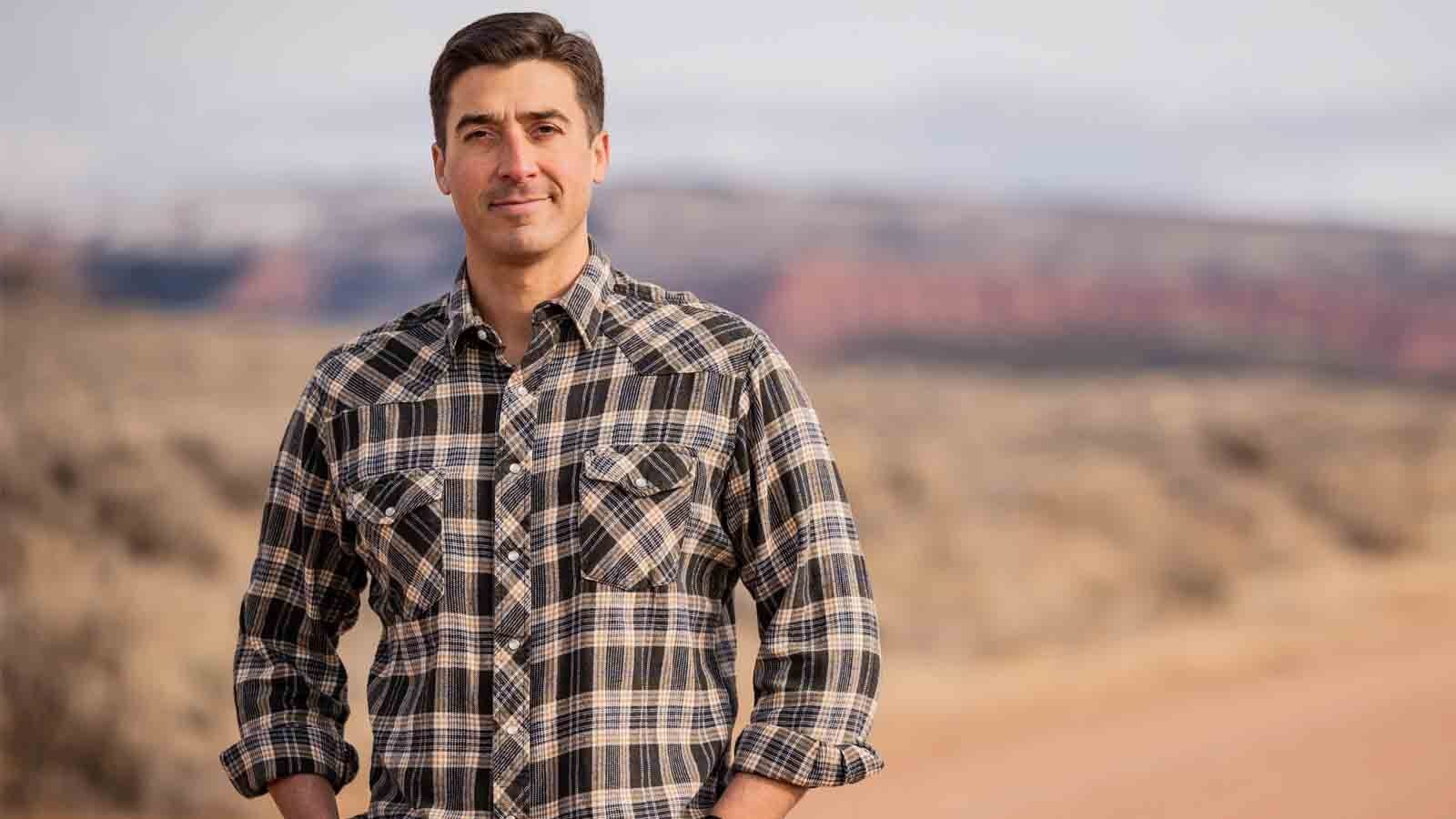A U.S. Supreme Court decision released Friday upholding an Oregon city’s law banning homeless people from sleeping and camping outdoors will give Wyoming cities the right to regulate the issue as they see fit.
The decision is likely to reverberate throughout the West where homelessness has become prevalent in many cities and towns like Denver to the south and growing in areas around the Cowboy State.
Cheyenne has one of the largest homeless populations in Wyoming and is directly impacted by the decision. The Cheyenne City Council formally addressed homeless encampments in 2023, passing an ordinance banning overnight use of certain parts of the city’s greenway.
Mayor Patrick Collins told Cowboy State Daily that he’s glad the Supreme Court made the decision it did and he had been waiting for it.
“I understand they are people, but they also can be a challenge at times,” he said about the pressure homelessness puts on city resources. “We’re working to find that balance.”
The Balance
Collins said it’s highly possible that the council will revisit its homeless ordinance in response to the Supreme Court ruling and expand the area that’s banned for overnight camping. Cheyenne has one homeless shelter with dedicated spaces for sober and non-sober residents.
City Council member Richard Johnson, the lone member of the council to vote against the 2023 ordinance, believes it’s been completely ineffective.
“They just moved down the creek or relocated to other parts of the city,” he said.
Issuing tickets is self-defeating as most homeless people don’t have the ability to pay them, and then run the risk of building a criminal record that could further inhibit their efforts to find a job, he said.
“It doesn’t solve the problem of homelessness,” Johnson said. “If they didn’t already have a criminal record now they will.”
Any expansion of the ordinance would also require consideration for the public camping that takes place for local softball tournaments and people attending Cheyenne Frontier Days, he said.
While not a fan of Cheyenne’s ordinance, Johnson said he does support the Supreme Court decision as he believes it will allow the city to enact more consistent city-wide policy on where homeless people can go after dark.
“I do appreciate they weren’t really in the business of micromanaging municipalities,” he said.
Earlier this year, the city approved a new budget that includes two new full-time employees solely dedicated to managing the local homeless population and related issues. The job duties for the positions, which will cost the city about $200,000 total with benefits, include picking up waste left by the homeless and working with these populations.
Johnson, who’s participated in 11 cleanups in the Crow Creek area where most Cheyenne homeless congregate, described it as “grueling work.”
There’s also a homeless population in the central Wyoming city of Riverton. Last September, at least 15 homeless people from Fremont County were bused and dropped off at a homeless shelter in Casper.
In Casper last August, the city council discussed how to deal with a growing homeless problem that had seen a local vacant hotel trashed and city workers having to clean up hundreds of pounds of human feces from public areas.
“It’s nice to have some help from the Supreme Court,” said Riverton Mayor Tom Hancock.
In Riverton, no one can occupy the city’s parks after dark, which Hancock said for the most part already addresses the issue of overnight camping. But he said the Supreme Court decision will still give the city direction on how to move forward on the issue.
“It’s definitely something we can talk about going forward in the city,” he said.
High Court Rules
The Supreme Court ruled 6-3 in its decision to uphold the laws enacted in Grants Pass, Oregon, penalizing people for sleeping and camping in public places, including sidewalks, streets and city parks. The city only had one homeless shelter and it required attendance at Christian religious services.
When the case was heard in April, the conservative justices argued that deciding ordinances is a matter of local control.
In her dissent, Justice Sonia Sotomayor wrote that the decision will leave society’s most vulnerable people without protections and punish people for being homeless.
“That is unconscionable and unconstitutional,” she wrote.
This follows on the heels of a 2018 decision by the U.S. Court of Appeals for the Ninth Circuit, which found it cruel and unusual punishment for cities and states to penalize someone for sleeping outdoors if no shelter beds are available.
That’s somewhat the case in Riverton, where there is no homeless shelter, although an effort is underway to build one. On the nearby Wind River Reservation, there is both a shelter and a warming hut.
Leo Wolfson can be reached at leo@cowboystatedaily.com.


